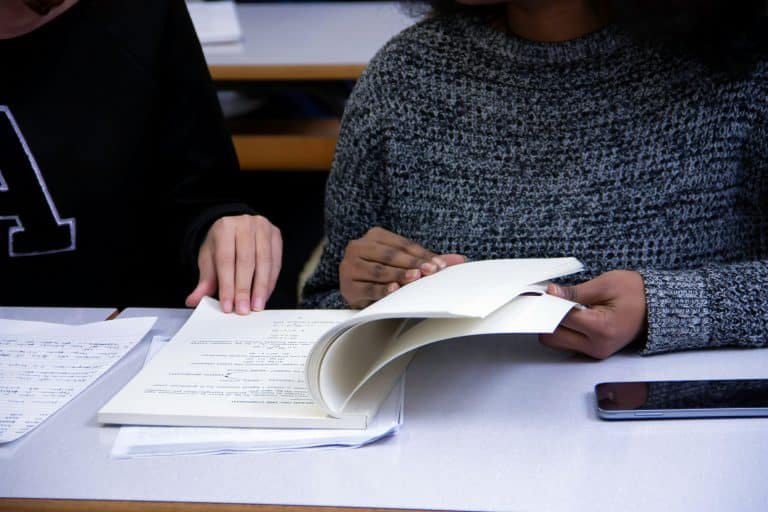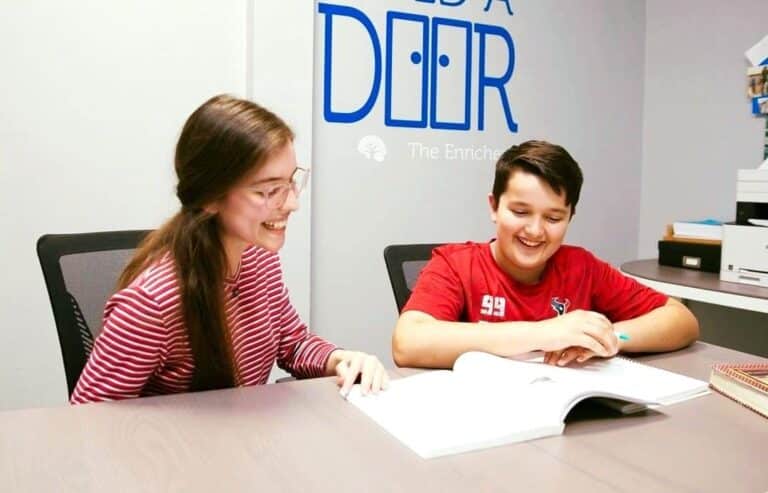There are a lot of things you learn in high school and college that, odds are, you won’t really need to know out in the “real world.” (I’m lookin’ at you, quadratic formula). Obviously it’s important to study up and master these concepts in school, but you probably won’t be labeled a failure if some of these things escape you as the years pass by. If there is one goal, however, that you should work toward diligently through high school, college, and beyond, it’s to improve your critical thinking. In fact, if critical thinking is the strongest skill you have upon graduation, you’re in a great place. So, what exactly is critical thinking, and how on earth does someone improve it?
According to The Foundation for Critical Thinking, critical thinking is:
Critical thinking is the intellectually disciplined process of actively and skillfully conceptualizing, applying, analyzing, synthesizing, and/or evaluating information gathered from, or generated by, observation, experience, reflection, reasoning, or communication, as a guide to belief and action.
In layman’s terms, critical thinking means looking at something objectively and with all the facts in order to make a judgment. It’s the opposite of the unconscious thinking we do throughout most of our day-to-day activities, because it requires us to actually stop, take some time, and consciously seek out and consider all of the information available to us. And because it’s a very deliberate, intentional process, you can easily employ these tips and tricks to improve your critical thinking.
Collect your data and ask questions!
As my mother can attest, I am a recovered know-it-all (or at least mostly recovered). For a long time, I was overconfident in my own wisdom and well, I didn’t know what I didn’t know. If someone had a differing opinion or viewpoint, they were wrong and that was that. When it comes to thinking critically, it’s so important to ask questions and learn as much as you can about whatever topic you’re exploring, even if you already think you “know it all.”
The more information you have at your disposal, the more informed and nuanced your final answer or decision will be. Consult the experts, talk to people on every side, gather new perspectives, do the background research… just dig in!
Consider everything you’re assuming in a given situation, and analyze those assumptions.
We all make tons of assumptions throughout our day, and it’s not always necessarily a bad thing… except when you’re trying to think critically. In order to really view things in an unbiased way, you’ve got to start from scratch, sans assumptions and preconceived ideas. Consider this: Simon Newcomb was a well-respected astronomer and mathematician in the 19th century. He proclaimed that it was impossible for heavier-than-air objects to fly. What if the Wright brothers had assumed this to be true?
No matter what it is that you’re considering, try your best to reject any assumptions you’re holding and look at everything with complete neutrality. You might be surprised to see that some of the ideas or beliefs you thought to be fact are actually up for debate.
Look at all the full picture.
Look at the full context and different perspectives of a situation. Most of us have a tendency to make a judgment, and then – intentionally or unintentionally – only look at the evidence that supports it. You’ve got to look at everything… even if you think it might be bogus. I’m sure you’ve experienced a moment when you read or heard a counterargument, or got additional background information on something, and thought, “Hmm… I may have been wrong about this.”
I recently watched a true crime docuseries with my husband. When the opening credits rolled, I told him, “I wonder what they’ll even talk about in this series. It’s not like there is any question about this man’s guilt.” Then they laid out all the evidence. By closing credits, I was ready to sign a Change.org petition to help free this guy from prison. Yes, this is a completely silly example… but it shows how we get confident and comfortable in a belief, and seeing the full picture can totally change things.
Ignore the opinions or assumptions of others.
Just because your parents told you something doesn’t mean it’s accurate. Just because your teacher told you something doesn’t mean it’s law. I’m not encouraging you to become a contrarian who argues against everything, but it’s so important as a critical thinker to form your own opinions, make your own decisions, and, when appropriate, question what you’re taught. Try your best to approach everything with an open mind and an eagerness to learn.
Play devil’s advocate, and try arguing from the exact opposite point of view.
One of the best (and sometimes most challenging) exercises you can do to really understand a concept from all sides is to argue it from all angles. Let’s say you’re trying to think critically about the idea of lowering the drinking age, for example. You may have an arsenal of data that will support lowering the drinking age. Now, try arguing the exact opposite: keeping the drinking age at 21 (or even raising it). By researching enough to create an argument for the opposing viewpoint, you will be much more informed about the debate as a whole, and you’ll likely have a more thoughtful and nuanced final answer.
To improve your critical thinking is to improve all facts of your life, from academics to relationships While it’s often easy and comfortable to put your brain on autopilot and operate under assumptions and naïve certainty, you’ll be much more successful if you employ critical thinking to arrive at accurate and well thought-out answers.





